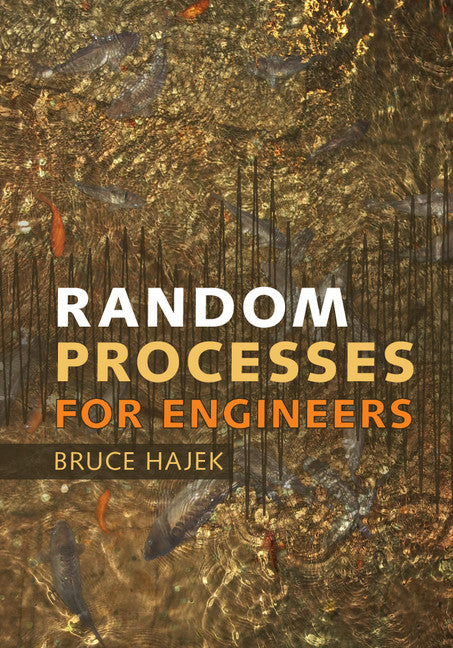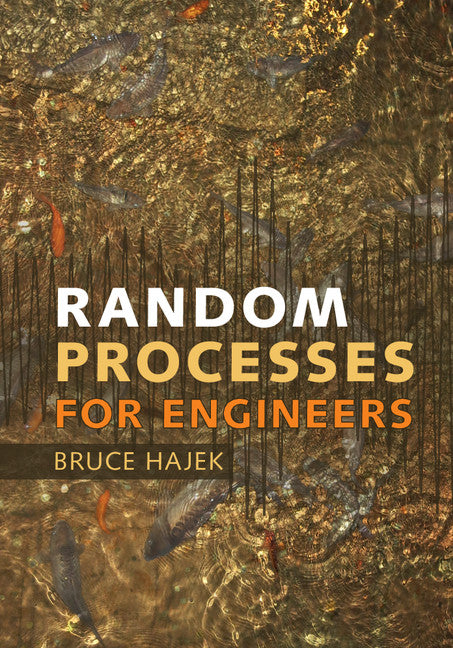Freshly Printed - allow 8 days lead
Couldn't load pickup availability
Random Processes for Engineers
An engaging introduction to the critical tools needed to design and evaluate engineering systems operating in uncertain environments.
Bruce Hajek (Author)
9781107100121, Cambridge University Press
Hardback, published 12 March 2015
432 pages, 130 b/w illus. 1 table 307 exercises
25.4 x 17.8 x 2.3 cm, 0.98 kg
'I was fortunate to have a mature draft of [this] book when I introduced a stochastic processes course to my department … [It] provides an entirely accessible introduction to the foundations of stochastic processes … the students in my course enjoyed Hajek's introduction to measure theory, and … could appreciate the value of the abstract concepts introduced at the start of the text. It includes applications of this general theory to many topics that are of tremendous interest to students and practitioners, such as nonlinear filtering, statistical methods such as the EM-algorithm, and stability theory for Markov processes. Because the book establishes strong foundations, in a course it is not difficult to substitute other applications, such as Monte-Carlo methods or reinforcement learning. Graduate students will be thrilled to learn these exciting techniques from an accessible source.' Sean Meyn, University of Florida
This engaging introduction to random processes provides students with the critical tools needed to design and evaluate engineering systems that must operate reliably in uncertain environments. A brief review of probability theory and real analysis of deterministic functions sets the stage for understanding random processes, whilst the underlying measure theoretic notions are explained in an intuitive, straightforward style. Students will learn to manage the complexity of randomness through the use of simple classes of random processes, statistical means and correlations, asymptotic analysis, sampling, and effective algorithms. Key topics covered include: • Calculus of random processes in linear systems • Kalman and Wiener filtering • Hidden Markov models for statistical inference • The estimation maximization (EM) algorithm • An introduction to martingales and concentration inequalities. Understanding of the key concepts is reinforced through over 100 worked examples and 300 thoroughly tested homework problems (half of which are solved in detail at the end of the book).
1. A selective review of basic probability
2. Convergence of a sequence of random variables
3. Random vectors and minimum mean squared error estimation
4. Random processes
5. Inference for Markov models
6. Dynamics for countable-state Markov models
7. Basic calculus of random processes
8. Random processes in linear systems and spectral analysis
9. Wiener filtering
10. Martingales
11. Appendix
12. Solutions to even numbered problems.
Subject Areas: Signal processing [UYS], Computer science [UY], Computing & information technology [U], Technology, engineering, agriculture [T], Mathematics & science [P]


